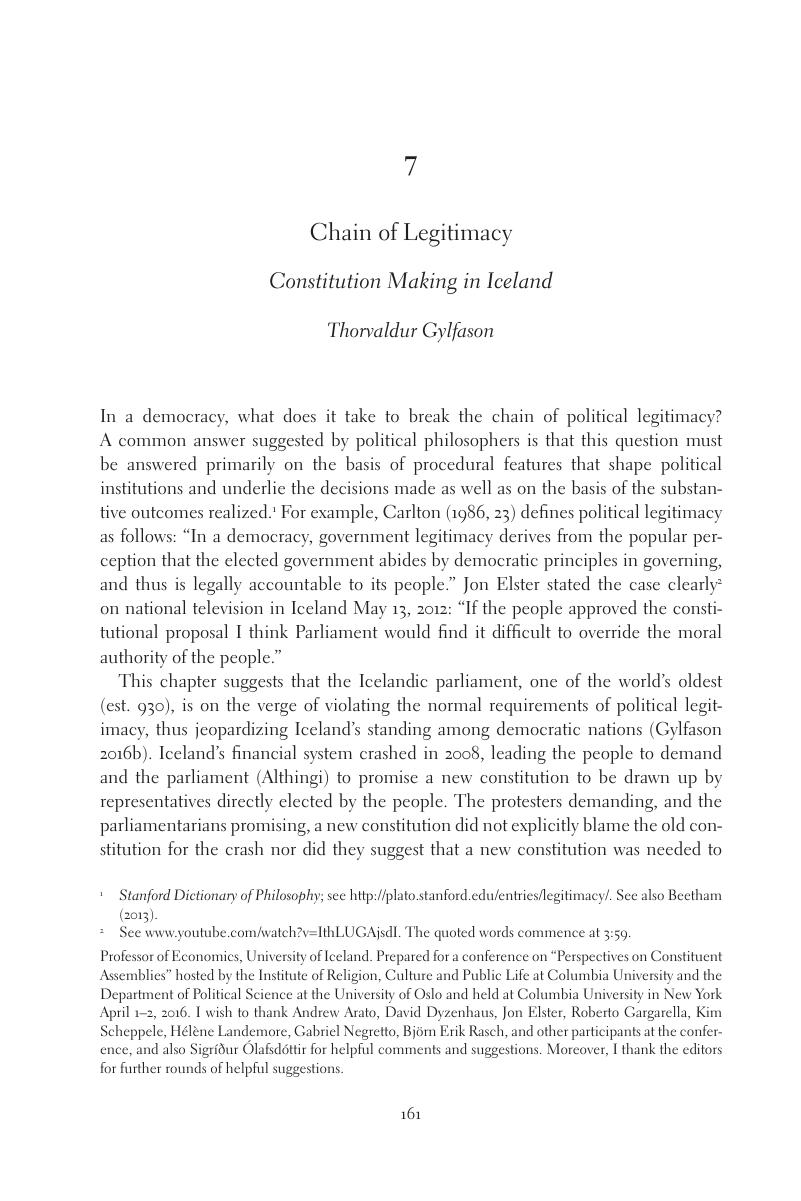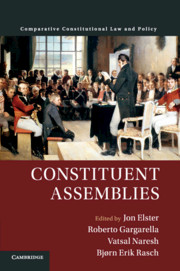Book contents
- Constituent Assemblies
- Comparative Constitutional Law and Policy
- Constituent Assemblies
- Copyright page
- Contents
- Contributors
- Introduction
- 1 Constitution Making in the Context of Plural Societies
- 2 Constituent Assemblies in Democratic Regimes
- 3 Constituent Assemblies and Political Continuity in Divided Societies
- 4 Constituent Assembly Failure in Pakistan and Nepal
- 5 Precautions in a Democratic Experiment
- 6 A Race against Time
- 7 Chain of Legitimacy
- 8 Constitution Making and Legislative Involvement in Government Formation
- 9 The Political Psychology of Constitution Making
- Index
- Series page
- References
7 - Chain of Legitimacy
Constitution Making in Iceland
Published online by Cambridge University Press: 05 June 2018
- Constituent Assemblies
- Comparative Constitutional Law and Policy
- Constituent Assemblies
- Copyright page
- Contents
- Contributors
- Introduction
- 1 Constitution Making in the Context of Plural Societies
- 2 Constituent Assemblies in Democratic Regimes
- 3 Constituent Assemblies and Political Continuity in Divided Societies
- 4 Constituent Assembly Failure in Pakistan and Nepal
- 5 Precautions in a Democratic Experiment
- 6 A Race against Time
- 7 Chain of Legitimacy
- 8 Constitution Making and Legislative Involvement in Government Formation
- 9 The Political Psychology of Constitution Making
- Index
- Series page
- References
Summary

- Type
- Chapter
- Information
- Constituent Assemblies , pp. 161 - 185Publisher: Cambridge University PressPrint publication year: 2018
References
- 3
- Cited by

